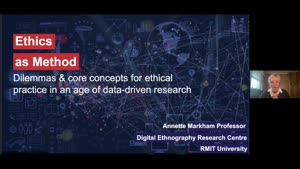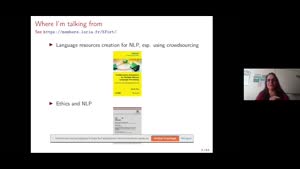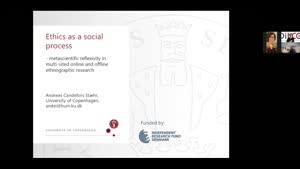Code-mixing on social media: Understanding when, why and how speakers mix languages: DiLCo Lecture Series 2023 (28 September) - Monojit Choudhury, Sunayana Sitaram - Universität Hamburg
- Lecture2Go
- Videokatalog
- F.5 - Geisteswissenschaften
- Sprache, Literatur, Medien (SLM I + II)
- Digital language variation in context (DiLCo)
Videokatalog
Code-mixing on social media: Understanding when, why and how speakers mix languages: DiLCo Lecture Series 2023 (28 September)
Monojit Choudhury is currently a Principal Applied Scientist at Microsoft Turing, and previously was a Principal Researcher at Microsoft Research Lab India. His research interests span various aspects of natural language processing and cognitive sciences, including multilingual models, ethics of NLP and AI, and NLP for social good. Dr. Choudhury is a Professor of Practice at Plaksha University and had previously served as adjunct faculty at IIIT Hyderabad and IIT Kharagpur. He is the general chair of the Panini Linguistics Olympiad, which is the Indian national linguistics Olympiad for high school students, and the founding chair of the Asia Pacific linguistics Olympiads. Dr. Choudhury has a PhD and BTech in Computer Science and Engineering from IIT Kharagpur.
Sunayana Sitaram is a Principal Researcher at Microsoft Research India. Her research goal is to improve the inclusivity of AI by enhancing the accuracy and safety of LLMs in non English languages. Her current research focus is on the evaluation of Large Language Models in non-English languages across dimensions of quality, safety and task completion. Sunayana also serves as the Director of the MSR India Research Fellow program which provides an exceptional opportunity for students considering a research career by exposing them to a world class research environment and providing mentorship from some of the world's top researchers. She has organized several conferences, workshops and special sessions, including IWSDS 2023 special sessions on code-switching at Interspeech 2016, 2018, CALCS 2020, 2021, 2022 SUMEval 2022, and has given several invited talks in both academia and industry. She served as the co-chair of the Industry track at ACL 2023 and the Senior Area Chair of the Multilingualism track at ACL 2023 and EMNLP 2023.
Code-mixing or Code-switching refers to the mixing of two or more languages in a conversation or even within an utterance. It is prevalent in all multilingual society. Through small-scale qualitative user studies, sociolinguists have identified a wide range of patterns and factors influencing code-mixing. However, with a deluge of user generated content on the Internet, especially on social media, it is now possible to study the nature of this phenomenon quantitatively at a global scale. In this lecture, we will cover a wide range of natural language processing techniques that allow us to study code-mixing at scale and present several fascinating discoveries about when, why, and how speakers across the world mix languages.
DiLCo Lecture Series 2023 aims to showcase cutting edge international research on digitally language and communication by both senior and younger researchers from across the world. We wish to present research that explores digital language and communication by drawing on key concepts and topics in socio-cultural linguistics, such as community, context, identity, mediated interaction, multimodality, and linguistic change. We particularly welcome presentations of innovative methods that cut across traditional disciplinary boundaries.
--- DiLCo (‘Digital language variation in context’) is a 3-year international research network initiated in 2021 at the University of Hamburg. The network brings together researchers from Europe and USA with expertise in computational, interactional, and ethnographic approaches to digital language and linguistics. It aims to provide a platform for the development of interdisciplinary ideas in digital language and communication research, and for early-career capacity building.
---
DiLCo (‘Digital language variation in context’) is a 3-year international research network initiated in 2021 at the University of Hamburg. The network brings together researchers from Europe and USA with expertise in computational, interactional, and ethnographic approaches to digital language and linguistics. It aims to provide a platform for the development of interdisciplinary ideas in digital language and communication research, and for early-career capacity building.

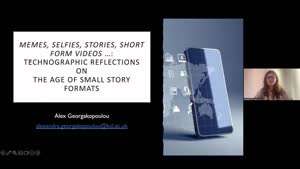
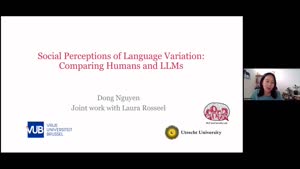
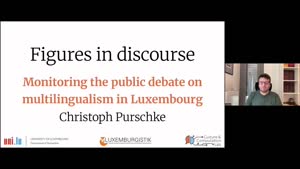
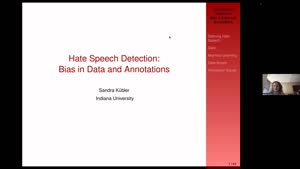
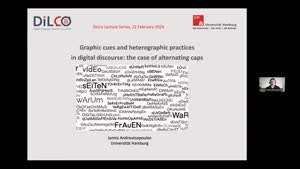
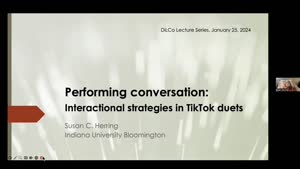
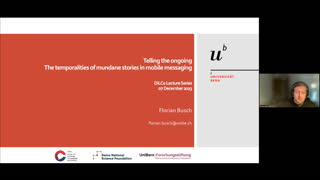
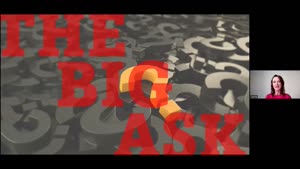
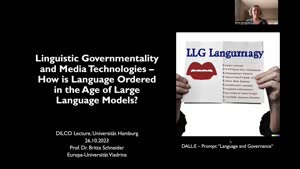
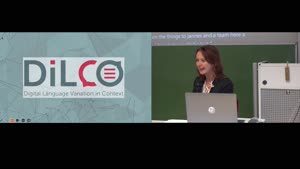
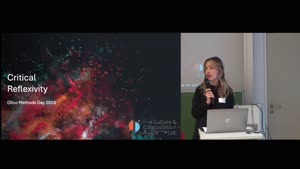
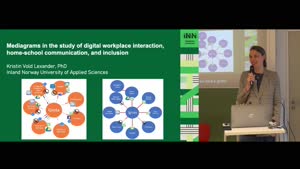
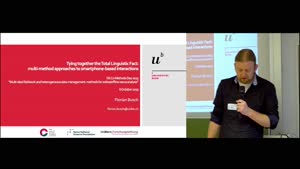
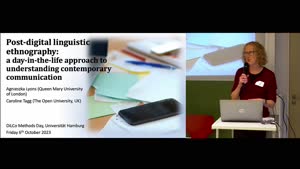
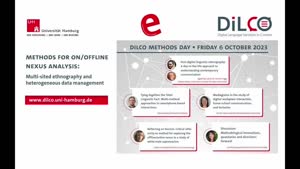
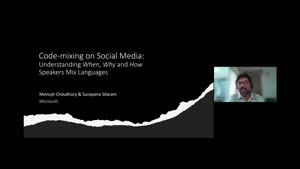
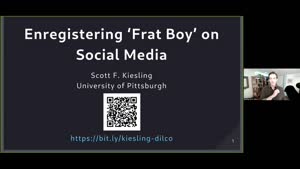
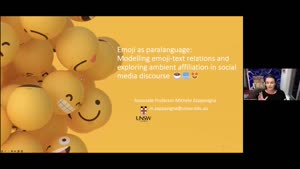
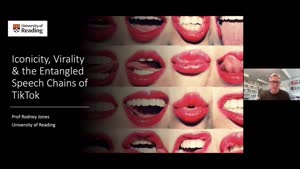
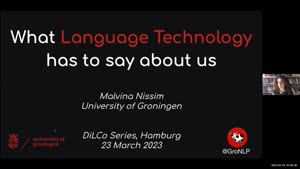
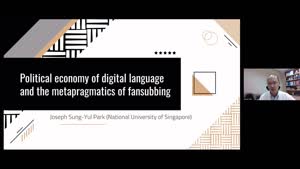
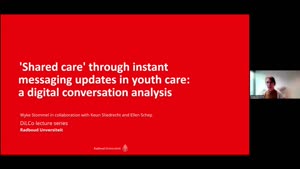
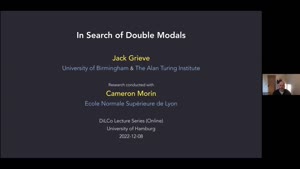
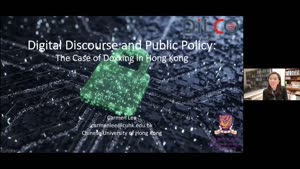
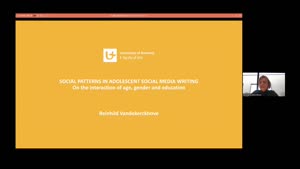
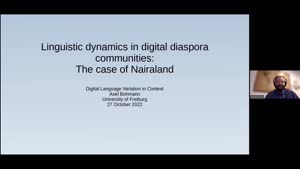
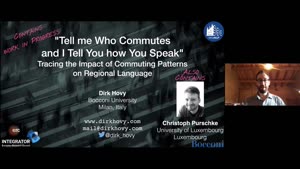
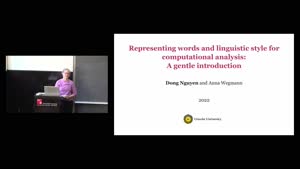
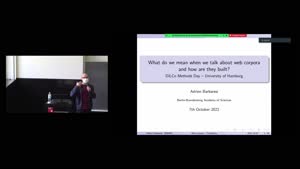
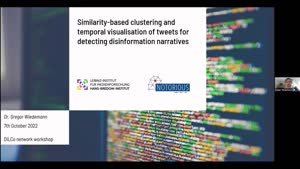
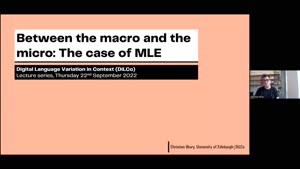
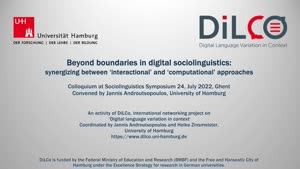
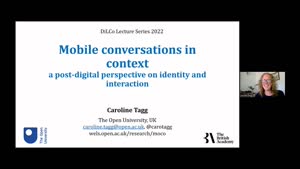
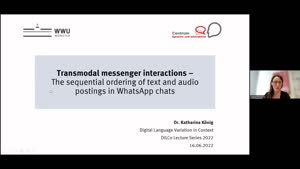
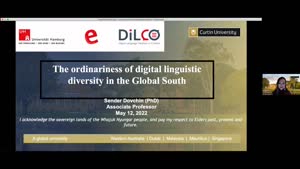
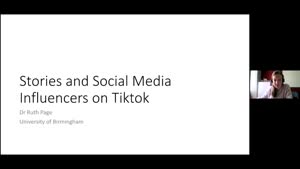
![Miniaturansicht - Graphic Prosody and political discourse on Greek Reddit [Presentation in Greek]](https://lecture2go.uni-hamburg.de/images/00.000_video-61074_2022-03-30_18-30_m.jpg?lastmodified=1663761108652)
